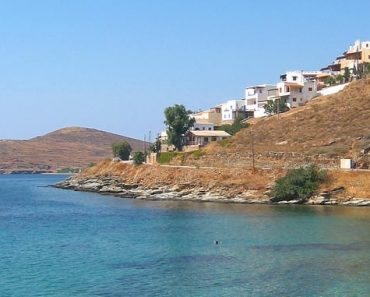Friday, May 16, 2025
Netherlands joins Italy, Greece, Spain, Portugal, and the UK are leading a continent-wide movement to transform tourism in 2025 by implementing sweeping new regulations aimed at curbing overtourism, protecting cultural heritage, and supporting sustainable development. From tourist taxes and cruise passenger levies to short-term rental restrictions and emission-free zones, these countries are responding to years of mounting pressure on local infrastructure, housing, and the environment. As global travel rebounds, these policy shifts reflect a decisive effort to balance economic benefits with community well-being—reshaping how tourism is managed, experienced, and preserved for future generations.
Europe Tightens Tourism Controls with New Taxes, Visitor Caps, and Sustainability Policies for 2025 Travel Season
As Europe enters its peak travel season from May through September, the continent is adopting a significantly firmer stance on tourism management. Across cities, coastlines, and cultural landmarks, local governments are rolling out a wave of new policies—including tourist taxes, daily visitor limits, cruise restrictions, and stricter rental rules—to address the mounting pressures of overtourism.
These shifts signal a fundamental transformation in how tourism is governed in Europe. Once experimental, such measures have now become mainstream, implemented not to discourage travel, but to protect fragile urban ecosystems, support residents, and preserve the essence of iconic destinations. Tourists are still warmly welcomed—but under new terms that place greater emphasis on sustainability, regulation, and conscious travel planning.
Here’s how several top destinations are adapting in 2025—and what travelers need to know.
Amsterdam, Netherlands: Sustainability Front and Center
Amsterdam is celebrating its 750th year with a strong commitment to climate-conscious tourism. A new twelve-point-five percent tourist tax now applies to accommodations, while oversized buses face entry bans. Cruise passengers are also subject to a €14.50 per-person charge.
In 2025, new regulations are reinforcing Amsterdam’s eco-forward approach: zero-emission zones now bar high-emission scooters and mopeds, and all canal tour boats must run on electric or non-polluting energy. These steps reflect a broader effort to prioritize livability and heritage over mass-market tourism.
Venice, Italy: Entry Fees and Rental Reforms
Venice has long struggled with overtourism, and 2025 sees the city doubling down on control measures. Day-trippers must pay an entry fee on fifty-four designated high-traffic days—€5 for early bookings and €10 for last-minute entries.
The revenue, which has already surpassed €2.2 million, is being reinvested in cultural preservation efforts. Short-term rental restrictions are also in place, capping availability at one hundred twenty days per year and mandating waste handling and in-person check-ins.
Pompeii, Italy: Visitor Cap to Protect Ancient Heritage
The ancient ruins of Pompeii welcomed four million visitors last year. In response, a cap of twenty thousand visitors per day has been introduced. Morning and afternoon limits—fifteen thousand and five thousand, respectively—are helping to regulate foot traffic.
To relieve pressure on the main site, a new shuttle system has been launched, directing visitors toward lesser-known archaeological locations in the region.
Mykonos and Santorini, Greece: Cruise Charges and Climate Taxes
Greece’s most photographed islands are no strangers to large crowds. In 2025, cruise passengers arriving at Mykonos and Santorini during summer will face a €20 per-person fee. With Mykonos receiving over one-point-two million cruise tourists last year, such measures aim to offset the impact on infrastructure and local life.
Additionally, the national Climate Resilience Tax—ranging from €1.50 to €15 per night based on hotel class and season—is being deployed to fund climate adaptation efforts. In Athens, a freeze on new short-term rental licenses reflects growing concerns over housing availability.
Spain’s Balearic Islands and Barcelona: High-Impact Tourism Under Review
Palma de Mallorca is putting limits on both cruise ship arrivals and new hotel developments. The goal: attract fewer, higher-spending tourists and reduce environmental strain.
Barcelona is pioneering an even bolder shift. In 2025, no new hotel or short-term rental permits will be issued in high-traffic neighborhoods. A proposed €7 nightly tax will contribute to housing and transit improvements, while a €400 million initiative is focused on promoting cultural, business, and low-impact tourism.
Lisbon and Porto, Portugal: Doubling Taxes, Cutting Rentals
Portugal’s popular cities are moving swiftly to rein in tourism-driven housing pressures. Lisbon has increased its overnight stay tax to €4, with Porto and other municipalities following suit.
Simultaneously, tighter short-term rental restrictions and scrutiny of golden visa schemes are being introduced to curb gentrification and return balance to urban communities.
United Kingdom: Digital Entry Permits and Local Levie
The UK is reshaping its travel policy landscape through the rollout of the Electronic Travel Authorisation (ETA). As of January 2025, non-European visitors must pay £10 for a digital entry permit.
While framed as a modernization of border systems, the ETA acts as an indirect tourist tax. In parallel, Scotland has enacted the Visitor Levy Act, and Wales is proposing similar legislation, both giving local authorities the ability to collect taxes to fund infrastructure and tourism management.
What Travelers Need to Know for 2025
Tourism is evolving—and so should your travel planning. Here are key considerations for navigating Europe’s changing landscape:
- Prepare for Extra Costs: Hotel taxes, entry fees, and transportation surcharges are becoming standard. Budget accordingly to avoid last-minute surprises.
- Book in Advance: Sites like Pompeii and Venice are imposing visitor caps and timed tickets. Secure reservations early, especially during peak months.
- Opt for Off-Peak Travel: Many cities now offer discounts and tax incentives for travelers visiting outside the summer high season. This not only saves money but provides a more relaxed experience.
- Follow Local Regulations: With strict rules on rentals, emissions, and transportation, travelers must stay informed to avoid fines or unintended disruptions.
- Choose Slow Travel: Dive deeper into each destination’s culture. Attend community events, visit secondary attractions, and support local businesses for a more meaningful experience.
Looking Ahead: A Sustainable Travel Future
Europe’s new wave of tourism policy isn’t about exclusion—it’s about protection. These evolving rules are designed to ensure that travel remains viable and enriching, not only for visitors but also for the people who call these destinations home.
Netherlands joins Italy, Greece, Spain, Portugal, and the UK are tightening tourism regulations in 2025 with new taxes, visitor limits, and sustainability policies to combat overtourism, protect local communities, and preserve cultural and environmental assets. These sweeping measures aim to balance economic benefits with long-term livability and responsible travel.
By planning wisely and traveling respectfully, tourists in 2025 can be part of a growing movement that balances exploration with preservation—ensuring Europe’s beauty and heritage endure for generations to come.
Tags: europe travel, greece, Italy, overtourism, Portugal, spain, sustainable travel, Tourism, Travel Policy, UK, visitor tax





